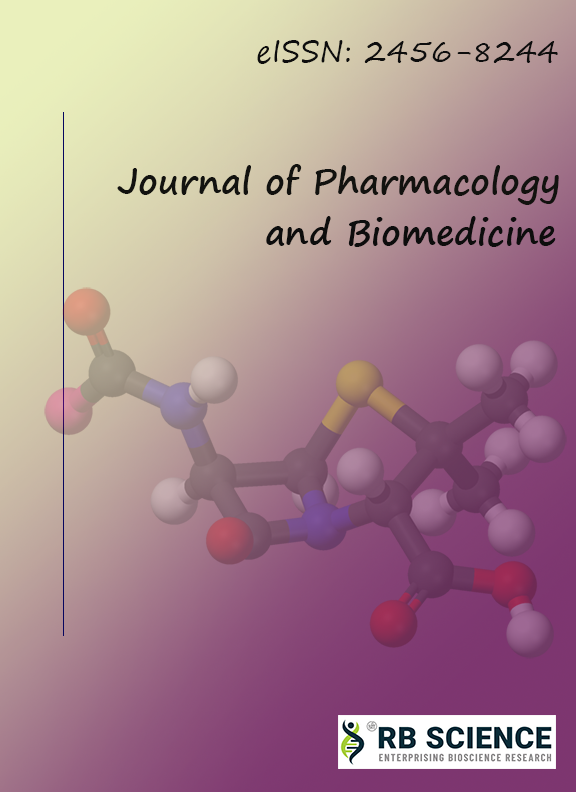In the present work, 2-indolyl-4,6-trisubstituted 1,3,5- triazine analogs were synthesized using the nucleophilic substitu- tion on cyanuric chloride in presence of dioxane or acetone. The FT-IR spectrum of compounds exhibited sharp peaks at 3300- 2700 cm-1 (aliphatic C-H), 1400-1700 cm-1 (aromatic ring), in all compounds while vibrations of N-H (3300-3400), NO2 (1300-1400 cm-1), C-Cl (850-550 cm-1) & C-Br (520-690 cm-1) were also found in the corresponding compounds. The 1H NMR spectra exhibit chemical shifts at ? 6.5-7.9 (aromatic protons), 4.0 (N-H), 2.5 (CH2) and 1.5 (CH3) in corresponding compounds. The antimicro- bial potential of the synthesized compounds was also evaluated and the combined data reveals that all the synthesized com- pounds show MIC values between 62.5 and 15.625 µg/mL against all the screened microorganisms. The compounds C3 and C5 ex- hibited the best results (IC50 – 15.625 µg/mL) against both the bacterial strains, other compounds exhibited MIC value of more than or equal to 32.5 µg/mL.

NAMES:
ONLINE ISSN:2456-8244
Keywords: Triazine, Indole, Antimicrobial, Minimum inhibitory concentration, Cyanuric chloride
DOI:
Vora, J.J.; Vasava, S.B.; E-Journal of Chemistry. 2009, 6, 201-206.
Dawane, B.S.; Kadam, S.N.; Shaikh, B.M.; Der Pharmacia Lettre. 2010, 2, 126-131.
Lakhdar, S.; Westermaier, M.; Terrier, F.; Goumont, R.; Boubaker, T.; Ofial, A.R.; Mayr, H.; Journal of Organic Chemistry. 2006, 71, 9088–9095
Clayden, N.; Greeves, S.; Organic Chemistry, Oxford University Press, Oxford, 2001, 1169-1170.
Solankee, A.; Patel, K.; Patel, R.; E Journal of Chemistry. 2012, 9, 1897-1905
Mishra, R.; Jain, S.; Pharmacology Online. 2013, 1, 190-193.